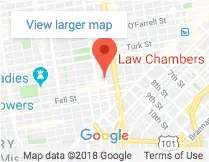Fraud Defense Lawyer
Common Types of Fraud
Below are some of the most common types of fraud that occur:
- Insurance fraud
- Workers’ compensation fraud
- Healthcare fraud
- Welfare fraud
- Foreclosure fraud
- Check fraud
- Credit card fraud
- Internet fraud
- Wire fraud
- False impersonation
- Senior fraud
- Nursing home fraud
There are other types, but these are the most common. The fraudulent scheme uses deceit to gain something in exchange for a false promise they never intend to fulfill.
Penalties for Fraud in California
The penalties and fines for fraud will vary greatly depending on factors such as the type of fraud committed and the amount of damage. In many cases, the damage is irreversible.
If auto insurance fraud is considered a felony, for example, the penalties could include up to five years in prison and a fine of $50,000 or two times the amount of the fraud, whichever is greater. If the auto insurance fraud is instead a misdemeanor, the penalties would be a fine of up to $1,000 and up to a year in jail.
Healthcare insurance fraud could be charged as a misdemeanor when the claim's value is less than $950. The misdemeanor would include up to six months in jail and a fine of $1,000. If the amount exceeds $950, it would be considered a wobbler, which means you could lead to either a felony or a misdemeanor. How you are charged will depend on the circumstances of the case. If accused of a felony, you could face up to five years in jail and double the amount of the fraud or $50,000, whichever is greater.
False impersonation could result in either a misdemeanor or a felony. The penalties could include fines of $10,000 and between five and 16 years in jail.
Penalties vary according to the amount involved. If you face fraud charges, talk with an attorney to better understand the penalties you will face if convicted. The attorneys can also start strategizing a defense that could work for your case.
Common Defenses for Fraud
Fraud is a serious crime, but certain defenses can work in your favor. For example, most of the time, fraud crimes must have the element of intent proven. The prosecutor must show that you meant to defraud a person or company. If there is no proven intent, the defendant will win their case.
Another potential defense would be if you were under duress during the fraud. For example, if you were forced or coerced into committing fraud by a third party, it could be a defense. Being under financial stress is not considered duress. For this to apply, you would want to show that you committed the fraud because someone was threatening your safety or the safety of a family member, for example.
Other defenses work when a member of law enforcement entrapped you or somehow violated your constitutional rights.
Of course, all cases differ, and you want to avoid trying to devise a defense on your own. After all, the penalties are severe. It would be best if you hired a reputable attorney.
And yes, even attorneys commit fraud when they incorrectly represent their education, training, and level of expertise. Here is a more complete discussion about the common defenses for fraud.
Get in Touch with an Expert Fraud Attorney
The high fines and the potential time behind bars are scary. The best course of action is to work with someone with a wealth of experience in the field who can help you better understand your situation. Get in touch with Gasner Law at 415-782-6000 today. We understand your worries and fears and can work with you to develop a defense.
Resources:



